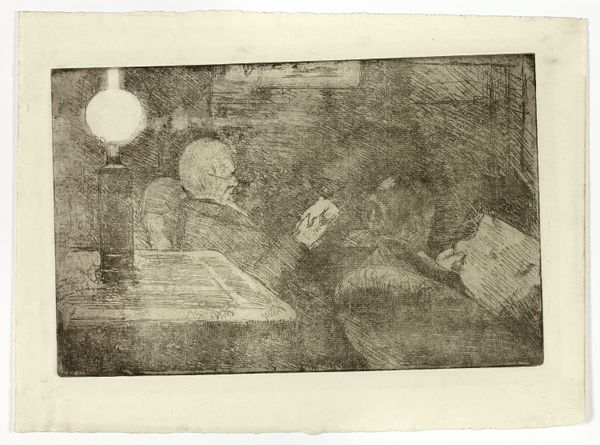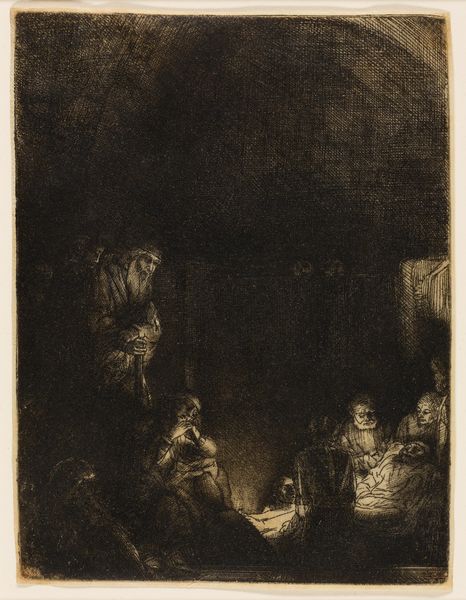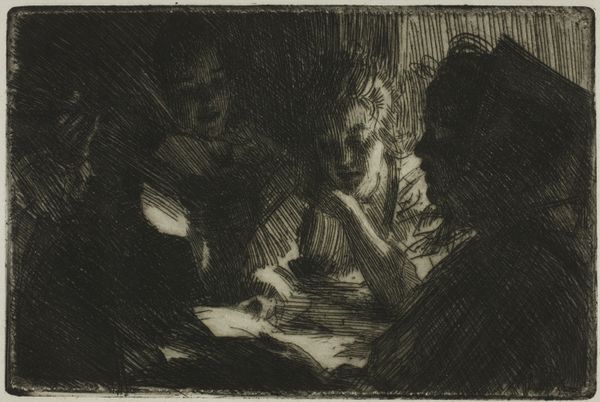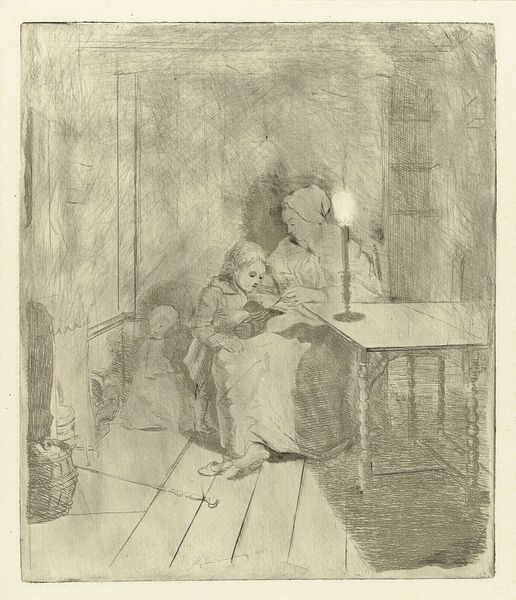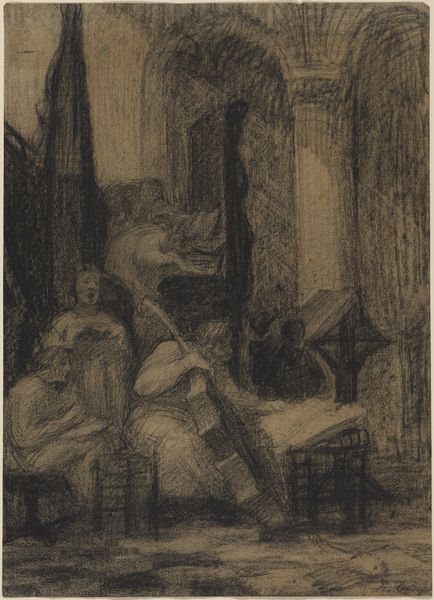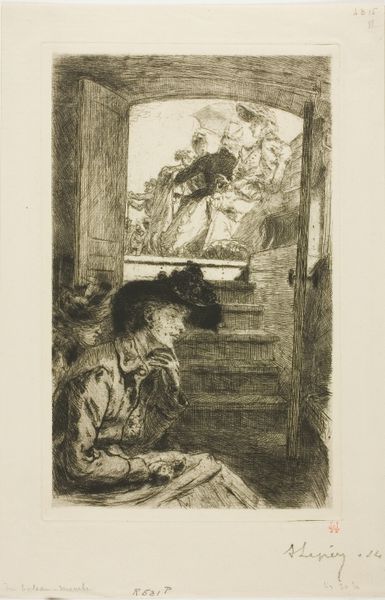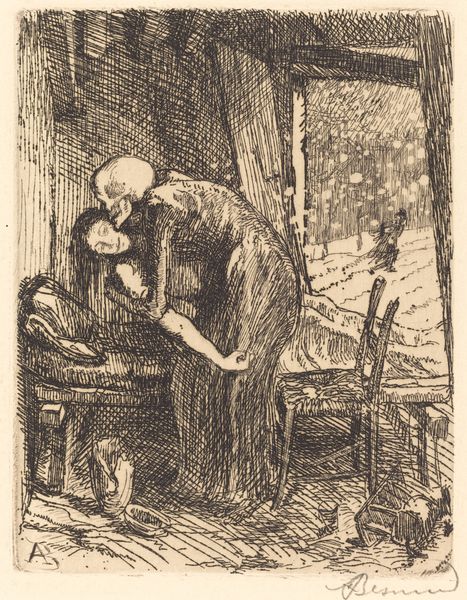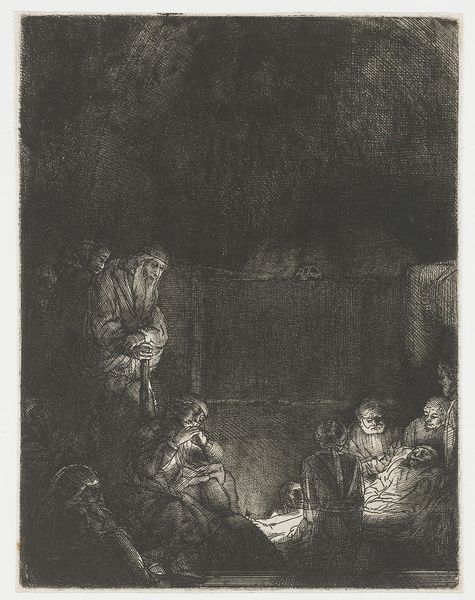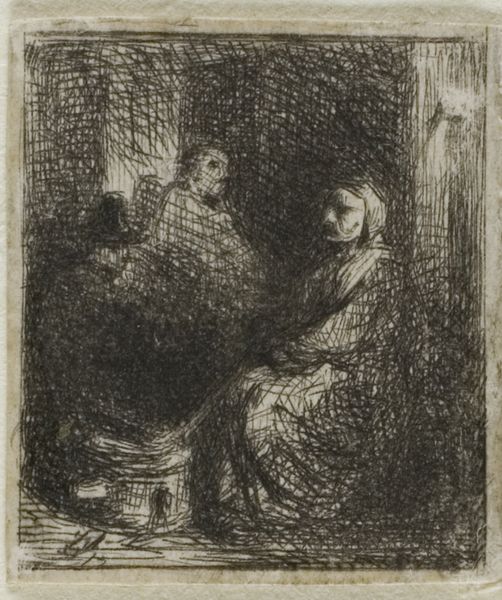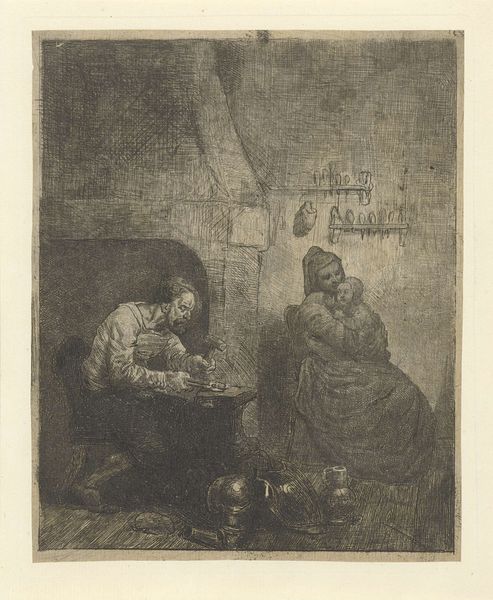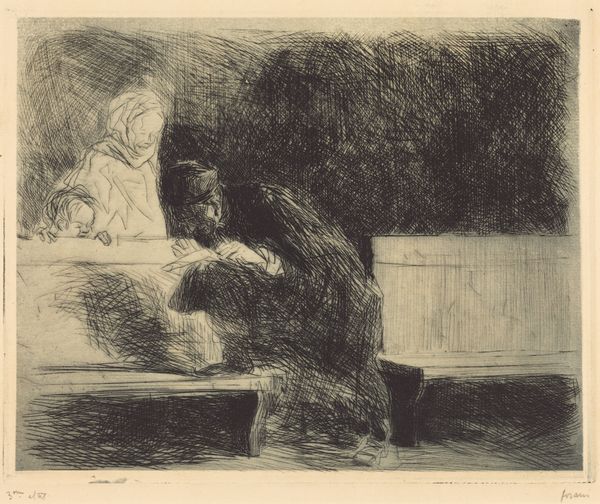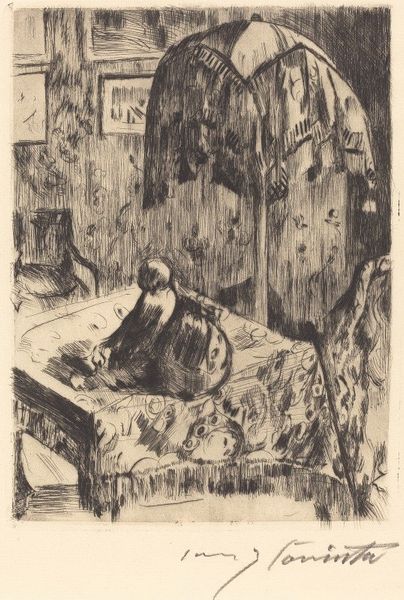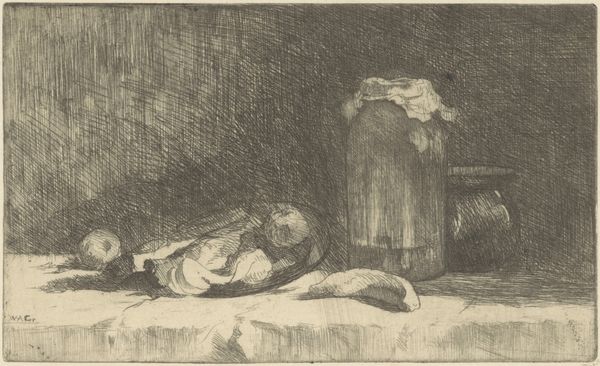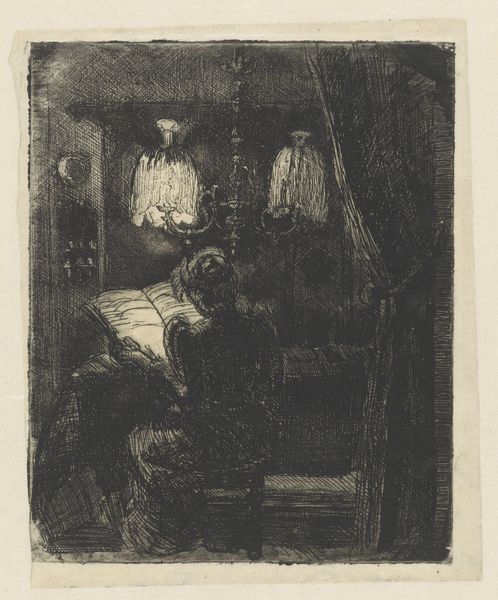
drawing, print, etching, paper, ink
#
portrait
#
drawing
#
narrative-art
# print
#
etching
#
figuration
#
paper
#
ink
#
intimism
#
line
#
genre-painting
#
history-painting
#
academic-art
#
realism
Copyright: National Gallery of Art: CC0 1.0
Curator: Looking at "Sleeping Scholar" by Alphonse Legros, created as an etching, the overwhelming feeling is one of profound weariness. What's your initial take? Editor: Yes, weariness seems right. But it’s not just personal; it speaks to something larger. The scene is cloaked in a kind of melancholic intellectual exhaustion. The scholar seems burdened. Curator: Right. Legros was deeply invested in portraying the lives of the working class, and how institutions shaped lives. Given the historical moment, what institutions might we be seeing at play here, shaping, perhaps exhausting, this scholar? Editor: Well, it’s easy to speculate. Perhaps we see the pressure of academic life bearing down on this individual, possibly reflecting a societal critique of intellectual labor and its detachment from broader social realities. The rise of the academic art world, for instance. And the rigid expectations imposed on those within it, largely white men from specific economic and social spheres. Curator: I appreciate your call for careful intersectional reading. Legros’ choice of etching is important here too. Etching allowed for incredibly detailed line work. Here we see meticulous crosshatching that both describes and obscures the scene. There's almost an active production of shadow at play here. What do we read from the shadowy mood in terms of gender studies? Editor: That's astute. The shadows almost enact a masking, or veiling, of patriarchal structures inherent within intellectual spaces. The 'scholar' here becomes representative of the exclusionary knowledge systems, built upon exclusion of others. How knowledge and the institutions are intertwined to produce this "exhaustion" becomes, for me, the primary question. Curator: I agree. Consider, too, how the very *act* of creating this kind of image positions Legros within and perhaps also against the art world of his time. "Sleeping Scholar," I think, invites conversations on power and privilege. Editor: It really does, doesn’t it? Legros presents a scenario ripe with potential for understanding class and academia and institutional practice— the quiet commentary here resonates even now. Curator: It’s a work that pulls us into this scholar's slumber and forces us to confront the reasons for his intellectual fatigue. I think what really stays with me is its subtle call to engage critically with power, particularly power linked to academic study and its historical implications. Editor: For me, it underscores the vital task we have to continuously examine and re-imagine access to knowledge and opportunity across various demographics. It makes for quite a statement, then and now.
Comments
No comments
Be the first to comment and join the conversation on the ultimate creative platform.
